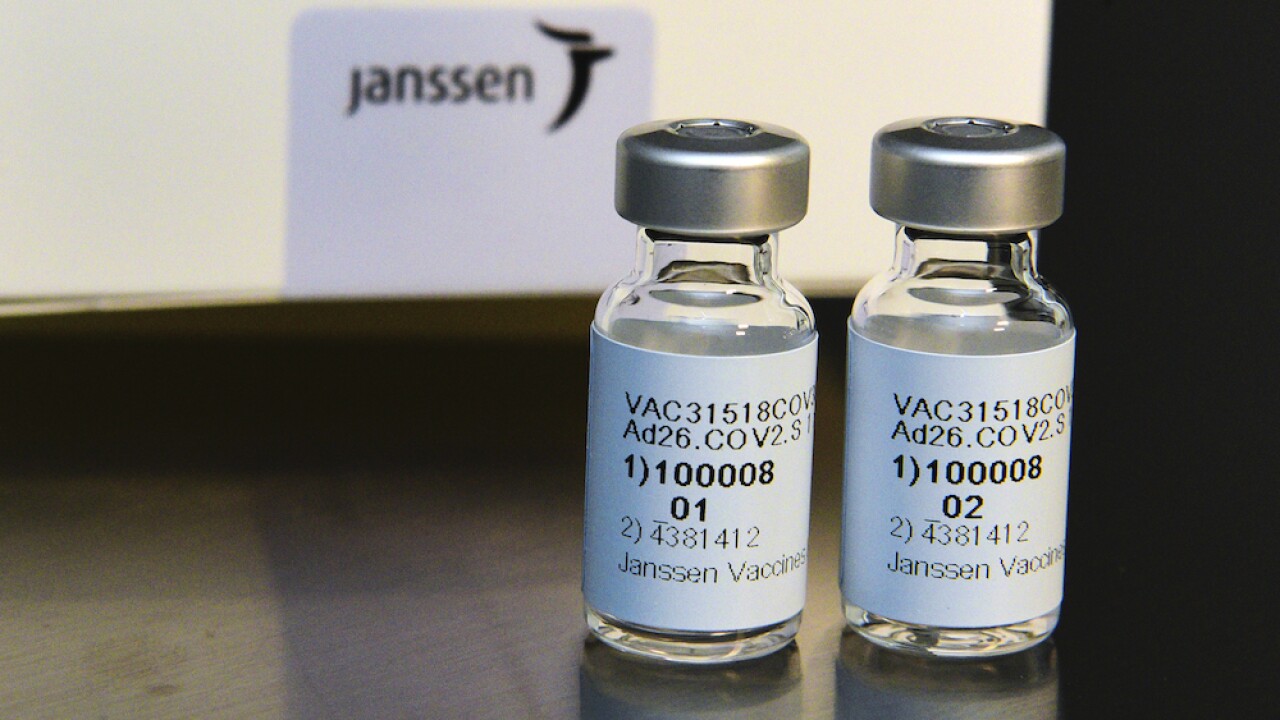SAN DIEGO (KGTV) -- The FDA’s scientific advisory committee will vote next week on whether to recommend a third COVID-19 vaccine for authorization. It will be the first vote amid the backdrop of viral variants that may be more transmissible or elusive to vaccines.
The agency’s staff scientists are currently reviewing data from the clinical trials on Johnson and Johnson’s single-dose vaccine. Once that analysis is complete, the agency will turn over detailed summaries to the Vaccines and Related Biological Products Advisory Committee (VRBPAC), a group of outside experts who will review the data and vote on the application Feb. 26.
This time, staff scientists are spending more time with the data. The VRBPAC vote is scheduled 22 days after Johnson and Johnson submitted its application. The FDA internally reviewed Moderna’s candidate for 17 days.
Pfizer and Moderna’s vaccines got the greenlight in mid-December before scientists were aware of the threat of variants. The United Kingdom announced new lockdowns in Southeast England in response to a lineage called B.1.1.7 on Dec. 19, one day after the Moderna vaccine was authorized by the FDA.
Peter Marks, the director of the FDA biologics center, acknowledged the variants make the agency’s analysis on Johnson and Johnson’s candidate more complicated. “There is indeed a greater complexity here,” he told the Wall Street Journal.
Johnson and Johnson reported its vaccine was 66 percent effective overall in the eight countries where it conducted trials. The vaccine dipped to 57 percent effective in South Africa, where the tricky B.1.351 variant now accounts for the vast majority of cases.
That variant has mutations that appear to disarm certain antibodies.
“In the back of our minds, I think we're all very worried about some of these variant strains,” said Dr. Mark Sawyer, a pediatrician at Rady Children’s Hospital who serves on VRBPAC.
In the United States, the vaccine was 72 percent effective. Dr. Sawyer expects his fellow advisers will focus on the vaccine’s efficacy in this country when weighing its risks and benefits.
“For the upcoming meeting at the end of this month, we're going to just have to make a recommendation based on what we know today about strains circulating in the United States and whether the Johnson and Johnson vaccine appears to be effective and safe for those strains,” he said.
As of Sunday, there were just 17 known cases of the South Africa variant in eight U.S. states, according to the CDC. There were 1,173 cases of the U.K. strain in 40 states.
Dr. Sawyer expects there will be more discussion at the upcoming meeting about the U.K. strain since it is projected to become the dominant version of the coronavirus in the U.S. sometime next month.
“That may come up at the FDA meeting,” he said. “What do we know about their vaccine against that variant? I'm not sure what that data will show us or how much data there is because when they did the vaccine trial, we may not have had very much of that string circulating.”
Johnson and Johnson began recruiting volunteers for its big clinical trials Sept. 23 and completed enrollment Dec. 17. The company was tasked with following volunteers for a median of two months.
In a press release, the company said its vaccine offers protection against multiple variants, including the variant in South Africa, but further details likely won’t become public until the FDA releases a summary of its analysis around Feb. 24.
Dr. Sawyer said the outside experts on VRBPAC may question Johnson and Johnson at the hearing about how fast the company can develop booster shots against the variants, but he does not expect that will ultimately weigh on their decision.
VRBPAC’s vote on whether to recommend an emergency use authorization for the vaccine is non-binding, although the FDA typically follows the committee’s advice.
The FDA granted EUAs to Pfizer and Moderna one day after their respective scientific advisory meetings. If that pattern continues, the agency could give Johnson and Johnson the greenlight on February 27.
The company said it will immediately begin shipping doses of its vaccine once it receives emergency authorization.





